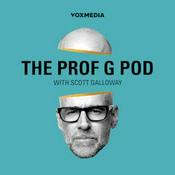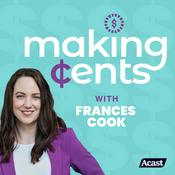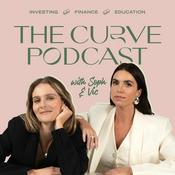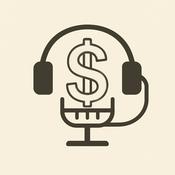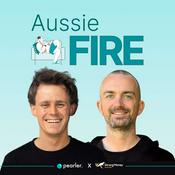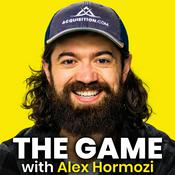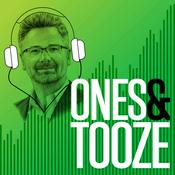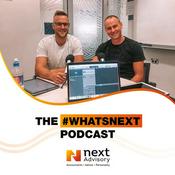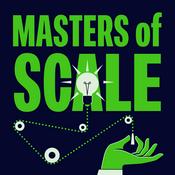155 episodes
- Julie M. Green is the author of Motherness: A Memoir of Generational Autism, Parenthood, and Radical Acceptance.
She shares about how difficult early parenthood was, how different her autism presents versus her kid's, and navigating school and regulation skills.
The book is a vulnerable look at some of the challenging and lighthearted moments of raising an autistic kid.
Connect with Julie:
Her book Motherness: A Memoir of Generational Autism, Parenthood, and Radical Acceptance
Website: juliemgreen.ca
Instagram: https://www.instagram.com/juliem.green
Substack: https://theautisticmom.substack.com/
AuDHD Flourishing resources:
Transcript Doc (often a few weeks behind, but we do catch up!)
Mattia's Newsletter
Like Your Brain community space (Patreon/Discord)
*affiliate link
Hosted on Acast. See acast.com/privacy for more information. - You deserve to survive this. Please stay.
And if staying out of spite helps you, it has gotten me through some tough times.
My Medium article, "Please Stay, We Need You"
Repost of ep. 75
Crisis Resources:
USA-based anonymous crisis chat
International crisis lines
Various types of crisis resources in about 10 countries
Resources:
Transcript Doc
Email Newsletter
Like Your Brain community space
Hosted on Acast. See acast.com/privacy for more information. - Flow is pleasant and often productive. It may also require some guardrails to be healthy for AuDHDers, especially those of us on the very monotropic side.
It's often easy for us to get into flow and hyperfocus, and to stay in them until they stop feeling pleasant.
Adding in more rest and recovery, including preparatory rest as needed, can really help!
It's also okay to avoid flow states for a period of time, as I am right now for the most part.
Do Less program for 2026 (starts Jan 15, reach out by Jan 7)
Email [email protected] with application answers, and/or any questions
AuDHD Flourishing resources:
Transcript Doc (often a few weeks behind, but we do catch up!)
Mattia's Newsletter
Like Your Brain community space (Patreon/Discord)
Hosted on Acast. See acast.com/privacy for more information. - Max Alexander is an artist and play worker who has mapped some common shapes of autistic play. He's passionate about neuro-affirming play for all ages.
Play is both a healing tool, and can help prevent some of the effects of trauma (we touch on this lightly, a concept I learned from Linda Thai)
One possible way to apply the play styles is noticing which ones speak to you, and which ones you're already engaging in, then leaning into those.
The ebook is free, and it's a quick and excellent read!
Apologies for the audio quality. Max was using a headset and didn't have an actual microphone, so I did the best I could to clean it up
Do Less program for 2026 (starts Jan 15, reach out by Jan 7)
Email [email protected] with application answers, and/or any questions
Connect with Max:
Max's book, The Joys and Shapes of Autistic Play
Max's Substack, Play Radical
AuDHD Flourishing resources:
Transcript Doc (often a few weeks behind, but we do catch up!)
Mattia's Newsletter
Like Your Brain community space (Patreon/Discord)
Hosted on Acast. See acast.com/privacy for more information. - AuDHD leadership touches on last week's interview with Dr Megan Anna Neff. And it goes beyond the visible leadership of creating content, or being in the public eye.
AuDHD leadership can include
being your authentic self
visibly meeting your sensory needs
sharing what helps you (whether or not it's advice)
Mentioned in episode:
- Do Less program for 2026 (starts Jan 15, reach out by Jan 7)
Email [email protected] with application answers, and/or any questions
- Blog post with business episodes
AuDHD Flourishing resources:
Transcript Doc (often a few weeks behind, but we do catch up!)
Mattia's Newsletter
Like Your Brain community space (Patreon/Discord)
Hosted on Acast. See acast.com/privacy for more information.
More Business podcasts
Trending Business podcasts
About AuDHD Flourishing
The monotropic neurotype of Autism + ADHD holds strengths and challenges. Typical advice often doesn't work for us! Your AuDHD host, Mattia Maurée (they/them), shares research, lived experience, and practical advice from coaching over 400 neurodivergent folks. They focus on feeling better first, before tackling the big life design questions. You're doing great, you belong here, and it's possible to feel a lot better. Hosted on Acast. See acast.com/privacy for more information.
Podcast websiteListen to AuDHD Flourishing, The Diary Of A CEO and many other podcasts from around the world with the radio.net app
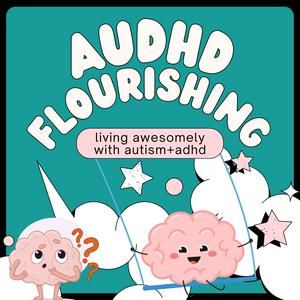
Get the free radio.net app
- Stations and podcasts to bookmark
- Stream via Wi-Fi or Bluetooth
- Supports Carplay & Android Auto
- Many other app features
Get the free radio.net app
- Stations and podcasts to bookmark
- Stream via Wi-Fi or Bluetooth
- Supports Carplay & Android Auto
- Many other app features


AuDHD Flourishing
Scan code,
download the app,
start listening.
download the app,
start listening.



